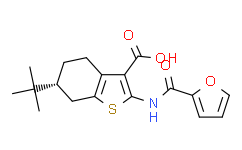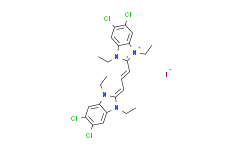Title:TMEM16A Inhibition Preserves Blood-Brain Barrier Integrity After Ischemic Stroke
标题:抑制TMEM16A在缺血性中风后保持血脑屏障的完整性
Authors: Pin-Yi Liu, et al.
Journal: Frontiers in Cellular Neuroscience
Publication Date: August 6, 2019
Introduction
The blood-brain barrier (BBB) is crucial for maintaining the brain's microenvironment, and its disruption is a major factor in ischemic stroke pathology. This study investigates the role of TMEM16A, a calcium-activated chloride channel, in BBB integrity following ischemic stroke.
引言
血脑屏障 (BBB) 对维持大脑微环境至关重要,其破坏是缺血性中风病理学的主要因素。本研究探讨了TMEM16A(一种钙激活氯通道)在缺血性中风后BBB完整性中的作用。
Methods
The researchers used both in vivo and in vitro models to study the effects of TMEM16A inhibition. Mice underwent middle cerebral artery occlusion (MCAO) to induce ischemic stroke, and human brain microvascular endothelial cells (HBMECs) were subjected to oxygen-glucose deprivation/reperfusion (OGD/R) to mimic stroke conditions in vitro.
方法
研究人员使用体内和体外模型研究了TMEM16A抑制的效果。小鼠接受大脑中动脉阻塞 (MCAO) 以诱导缺血性中风,人脑微血管内皮细胞 (HBMECs) 受到缺氧-葡萄糖剥夺/再灌注 (OGD/R) 处理,以模拟体外中风条件。
Results
TMEM16A expression was significantly increased following ischemic stroke. Silencing TMEM16A or using the inhibitor Caccinh-A01 reduced BBB permeability, decreased brain infarct size, and improved neurological outcomes. The study found that these protective effects were mediated through the downregulation of ICAM-1 via the NF-κB signaling pathway.
结果
缺血性中风后TMEM16A表达显著增加。沉默TMEM16A或使用抑制剂Caccinh-A01可以减少BBB的通透性,减少脑梗死面积,并改善神经学结果。研究发现,这些保护作用是通过NF-κB信号通路下调ICAM-1介导的。
Conclusion
The inhibition of TMEM16A preserves BBB integrity after ischemic stroke by reducing ICAM-1 expression through the NF-κB signaling pathway.
结论
通过NF-κB信号通路减少ICAM-1表达,抑制TMEM16A可以在缺血性中风后保持BBB的完整性。
Compounds and CAS Numbers / 化合物及CAS号
1.PDTC (Pyrrolidine dithiocarbamate) 5108-96-3
2.T16ainh-A01 3520-43-2







 沪公网安备31011402010657号
沪公网安备31011402010657号